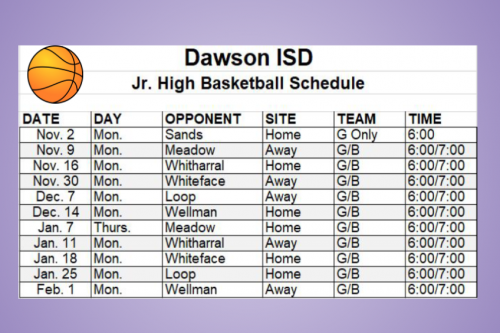
During the last 5 years, have we received an overpayment or an underpayment of state funds, and what is the dollar value there?ĭistricts receive state funding based on estimates.
#TEXAS SCHOOL DISTRICT BUDGET CALENDAR DRIVERS#
A natural disaster or large employer closing unexpectedly can mean a dramatic loss of revenue and reduction in student enrollment.Īcknowledging and reviewing the assumptions about budget drivers will help your administration and board to plan accordingly. Shifts in the local community can have a big impact on a district. Expenditures – energy, salaries, benefits, etc.Revenues by type – commercial, residential, oil, agriculture, etc.Budgets should reflect an intended reality, not wishful thinking. 5. What assumptions are we basing our budget on, have those assumptions changed in the last 5 years, and how successful have we been at making accurate assumptions?Īll budgets are built on assumptions, so it’s important to continually assess whether you’re getting close to reality. If tax collection rates have been steady, a board can make some safer assumptions about revenue going into budget time. As collection gets above 95 percent, it’s unlikely that much more revenue can be realized.ĭistricts with economies that experience regular booms and busts will likely see more fluctuation in their collection rates. There is a natural limit to the rate of tax collection. What is our current rate of tax collection and how does it compare over a 5-year period? It’s not sustainable over the long term.ĭeficit spending sets a district on a path to financial difficulty if the board does not course correct.It’s a legitimate option for addressing truly unexpected expenses.When a deficit budget is adopted, it’s important to recognize that: It’s not uncommon for districts to adopt a deficit budget that dips into fund balance. If your district has a fund balance policy, you’ll find it in CE (Local) in your policy handbook. The board must define what they consider adequate and make the decision in policy. TEA suggests the district maintain an “adequate” amount in the fund balance-recommending that school districts hold two to three months of expenses in reserve. This forces a longitudinal view of the fund balance. How long would your current fund balance carry your district if all revenue were to dry up and expenses were to remain the same? Only the unassigned funds can be tapped at the discretion of the board.

There are five categories of fund balances: There may be good reasons for the trend line, and as a board member, it’s your right to know. Knowing the trend line for your fund balance in the past 5 years can help direct a line of questions about the district’s financial health. It’s often considered when school bond ratings are set, and it’s an important protection against unplanned costs. The fund balance fluctuates considerably throughout the year, but it’s an indicator of the financial health of the district. A fund balance is the amount of assets in excess of liabilities.įund balance assets could include, among other things: People tend to think of a fund balance like a savings account, but the reality is more complicated. What is the current fund balance, and how does it compare over the last 5 years?
/static.texastribune.org/media/images/2016/06/30/ShaleSchools-2.jpg)
When the board is expected to vote on the budget and set the tax rateĢ.When a complete draft budget can be reviewed.Enrollment projections and demographic reports.Staffing projections and salary schedules.When revenue estimates (property tax-appraised values) are available.


Other discussions your board will have throughout the year about staffing, student enrollment, or programs are also - at some level - budget discussions. Do we have a school finance and planning calendar that can be distributed?Ī finance and planning calendar is helpful for knowing what happens when and viewing budgeting as a year-long process. Reviewing the check register for the district with a fine-toothed comb isn’t the best use of your time, so what should you be looking at in the school district budget? This list of questions to ask about your district’s budget will help you focus on the big picture and dig deep into what matters in the budget. One of your legally required duties as a school trustee is monitoring the district’s finances-but finding the governance sweet spot can be challenging. After getting a handle on the differences between the board’s governance role and the superintendent and administration’s management role, one of the most challenging topics you’ll tackle is your district’s budget.


 0 kommentar(er)
0 kommentar(er)
